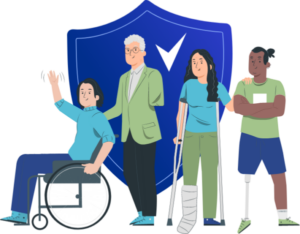Seasonal Migraines and How to Avoid Them
Many of the same things that prevent regular migraines are effective in preventing seasonal migraines. One additional point is that seasonal migraines are directly linked to sinuses, and things like allergies, which are more prevalent in the change of some seasons, can act as a trigger. Try to avoid allergens as much as possible, and keep the correct regimen of sinus medication during high allergy seasons.
Other common, preventative measures are:
- Regular sleep schedule. It goes without saying that the schedule includes enough sleep for the person.
- Healthy diet. Studies have found that dietary restrictions can be an effective way to reduce migraine frequency. Some report different food as ‘triggers’, and while these differ from person to person, knowing your diet and what’s safe is recommended measure.
- Regular exercise. A healthy body is less susceptible to other illnesses which can lead to migraines.
- Regular Schedule. Migrates love an irregular, off-kilter schedule. They less often inflict their viciousness on those who maintain a regular schedule.
While none of these measures is a surefire way to keep migraines at bay, they are generally accepted as a good start. You can’t control the weather, but you can control yourself! A useful technique for identifying what triggers are most effected is by keeping a journal of activities, diet, and the weather along with when migraines strike. By tracking this information, you can look back at a given incident and determine if any common triggers were present on that day.
Migraine Treatment
Migraine medication prescribed by a doctor should be taken as directed, and consultation should be sought before making changes to that medication. Often the strength of migraines warrants the use of powerful, prescription painkillers. Working with a physician to determine the right treatment and medication plan for you is very important as misuse of prescription painkillers can make migraines worse, not better.
Aside from prescription medication, keeping on top of allergies with sinus medication can be very important. Removing yourself (or the allergen) from the area will reduce the assault on the sinuses and may help speed along recovery from a migraine. Many people cite bright light as a migraine trigger, and in the summer months, it is important to wear the correct eye protection or otherwise seek refuge from bright conditions.
There are many natural remedies that have varying degrees of success with different people. Stress-relieving remedies like acupuncture, massage, and yoga can help when migraines strike and as a preventative measure as well as a treatment. Essential oils and other natural elements like ginger, butterbur, and fever few can prove useful as treatments. Consulting a natural path expert may be insightful in finding different options for treatment.
Migraine treatment is an individual process, and each person needs to find what works for them. Between natural remedies and prescription medication, there is a broad range of options to try. Keeping track of what works and what doesn’t in a specific migraine situation can pinpoint the right remedy.








